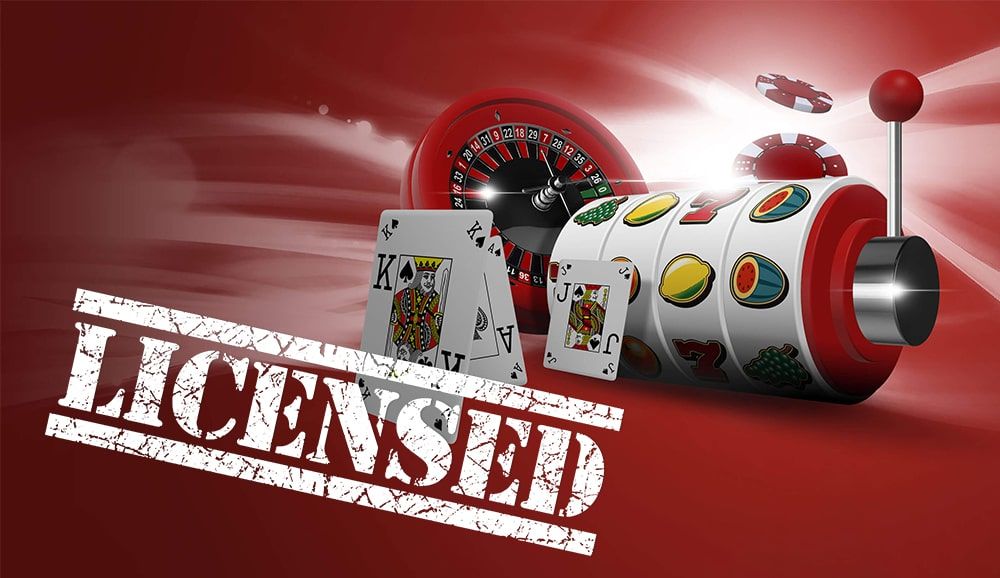Online Casino Licensing: Your Key to a Legitimate Gambling Business

Starting a legitimate online gambling business requires navigating the complex world of licensing and regulation. The process of acquiring an online casino license is crucial for any entrepreneur aiming to establish a credible and legal operation.
This guide aims to demystify the licensing process, highlighting its importance as a foundational step for running a trustworthy and successful online gambling platform.
We will delve into the intricacies of obtaining a license, the various jurisdictions and their requirements, and why this step is not just a legal formality, but a critical factor in gaining customer trust and ensuring the long-term viability of your online casino.
What is an Online Casino License?

An online casino license is a certification granted by a regulatory body, signifying that a gambling site operates within the legal and ethical frameworks set by the authorities.
This license is essential for any online casino to legally offer its services to players. The question of “who regulates online casinos” is pivotal, as these entities ensure that the online gambling environment is safe, fair, and transparent.
These regulatory bodies vary from one jurisdiction to another and are responsible for overseeing the operations of online casinos, setting standards, and enforcing compliance.
By acquiring a license, online casinos demonstrate their commitment to adhering to these stringent regulations, thus protecting the interests of their players and maintaining the integrity of the online gambling industry.
Types of Online Casino Licenses
The online gambling industry is diverse, and this diversity is reflected in the various types of online casino licenses available. Each type of license caters to specific aspects of online gaming operations, ranging from licenses for different games like slots, table games, and sports betting, to licenses for software providers and affiliate marketers.
Some jurisdictions offer a one-size-fits-all license, while others require separate licenses for different types of gambling activities.
Understanding these distinctions is crucial for operators to ensure they obtain the appropriate licensing for their specific needs. Additionally, the choice of license type impacts aspects like market reach, tax obligations, and compliance requirements, making it a critical decision in the business planning process for any aspiring online casino operator.
Benefits of Holding a License

Holding an online casino license brings a multitude of benefits that are essential for the success and credibility of a gambling business.
Firstly, it provides legal authorization to operate, protecting the business from legal issues and ensuring compliance with international gambling regulations. This legal standing is crucial for building trust with players, as it guarantees fairness, transparency, and the security of their transactions and personal information.
Additionally, a licensed casino has better access to high-quality software providers and payment processors, which are often hesitant to partner with unlicensed entities.
Moreover, a license enhances the ability to market effectively and enter new jurisdictions, as it signifies reliability and adherence to best practices. This leads to increased customer confidence and loyalty, thereby fostering a stronger and more sustainable business model.
Challenges in Obtaining a License
Obtaining an online casino license can be a challenging and intricate process, marked by a set of hurdles that operators must navigate. The first challenge lies in understanding and complying with the diverse and often stringent regulatory requirements that vary significantly across different jurisdictions.
This includes meeting financial stability standards, proving the fairness and integrity of gaming operations, and ensuring robust anti-money laundering measures and responsible gambling practices.
Additionally, the application process itself can be lengthy and resource-intensive, requiring extensive documentation and sometimes necessitating legal and consultancy services.
Furthermore, operators must be prepared for ongoing compliance, as holding a license entails regular audits, updates to meet evolving regulatory standards, and continuous operational adjustments. These challenges, while daunting, underscore the importance of thorough preparation and a commitment to maintaining high standards in the online gambling industry.
Regulatory Compliance and Ongoing Responsibilities

Navigating the realm of regulatory compliance and managing ongoing responsibilities are critical aspects of operating a licensed online casino. Once a license is obtained, the real work begins in maintaining adherence to the stringent regulations set forth by the governing body.
This includes ensuring game fairness, which often requires regular auditing of games and software, and upholding robust security measures to protect player data and prevent fraud. Online casinos must also stay vigilant in implementing responsible gambling practices, such as offering self-exclusion tools and setting betting limits.
Additionally, staying compliant involves keeping up with evolving legal and regulatory landscapes, which may require frequent updates to operational practices and policies. Financial compliance, particularly in areas like anti-money laundering, is another ongoing responsibility that demands meticulous attention.
Overall, these continuous obligations reflect a commitment to integrity and trustworthiness, which are indispensable for the long-term success and reputation of an online casino.
Global Perspectives on Online Casino Licensing
The global perspective on online casino licensing is a tapestry of diverse regulatory environments, reflecting varying attitudes and approaches to online gambling. In some regions, such as parts of Europe, the industry is highly regulated with well-established frameworks, offering clarity and stability for operators. Conversely, in countries like the United States, the regulatory landscape is fragmented, with rules varying significantly from one state to another.
In other areas, online gambling remains a gray area, either poorly regulated or awaiting legislative development. This global mosaic presents both opportunities and challenges for operators. It allows for strategic decisions in choosing jurisdictions that align with their business models and market goals.
However, it also demands a high degree of adaptability and an in-depth understanding of international laws and cultural attitudes towards gambling. Navigating this complex global environment requires a careful balancing act, ensuring compliance while maximizing market potential.
Future of Online Casino Licensing

The future of online casino licensing is poised for significant evolution, driven by technological advancements, changing regulatory landscapes, and shifting player expectations. We are likely to witness a greater emphasis on digital security and data protection, as online threats become more sophisticated.
This could lead to more stringent regulations focusing on cybersecurity measures within the licensing requirements. Additionally, the increasing popularity of cryptocurrencies and blockchain technology might spur new licensing categories and regulatory frameworks to accommodate these innovations.
We can also expect a more harmonized approach to regulations globally, as countries recognize the benefits of standardizing online gambling laws to streamline operations and enhance player protection.
Furthermore, the growing awareness of responsible gambling will likely result in more rigorous standards and tools integrated into licensing requirements. All these factors suggest a dynamic future for online casino licensing, one that balances the needs of operators, players, and regulators in the ever-evolving digital landscape.




